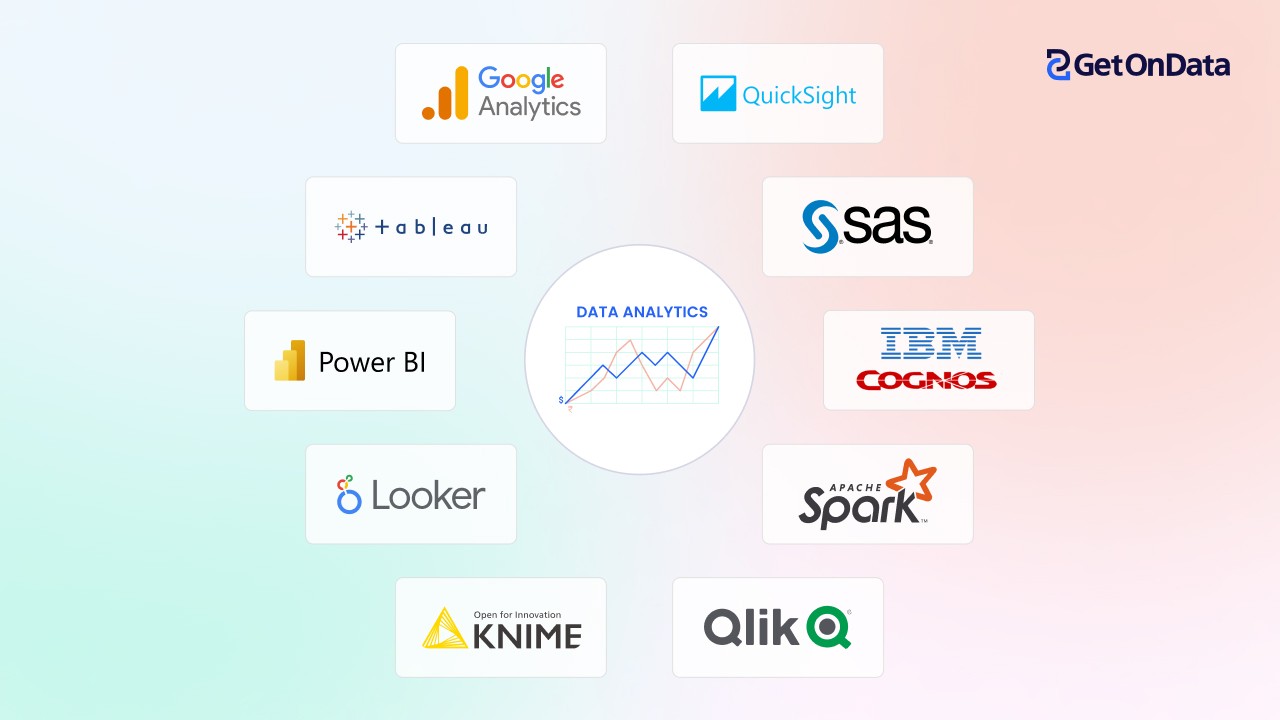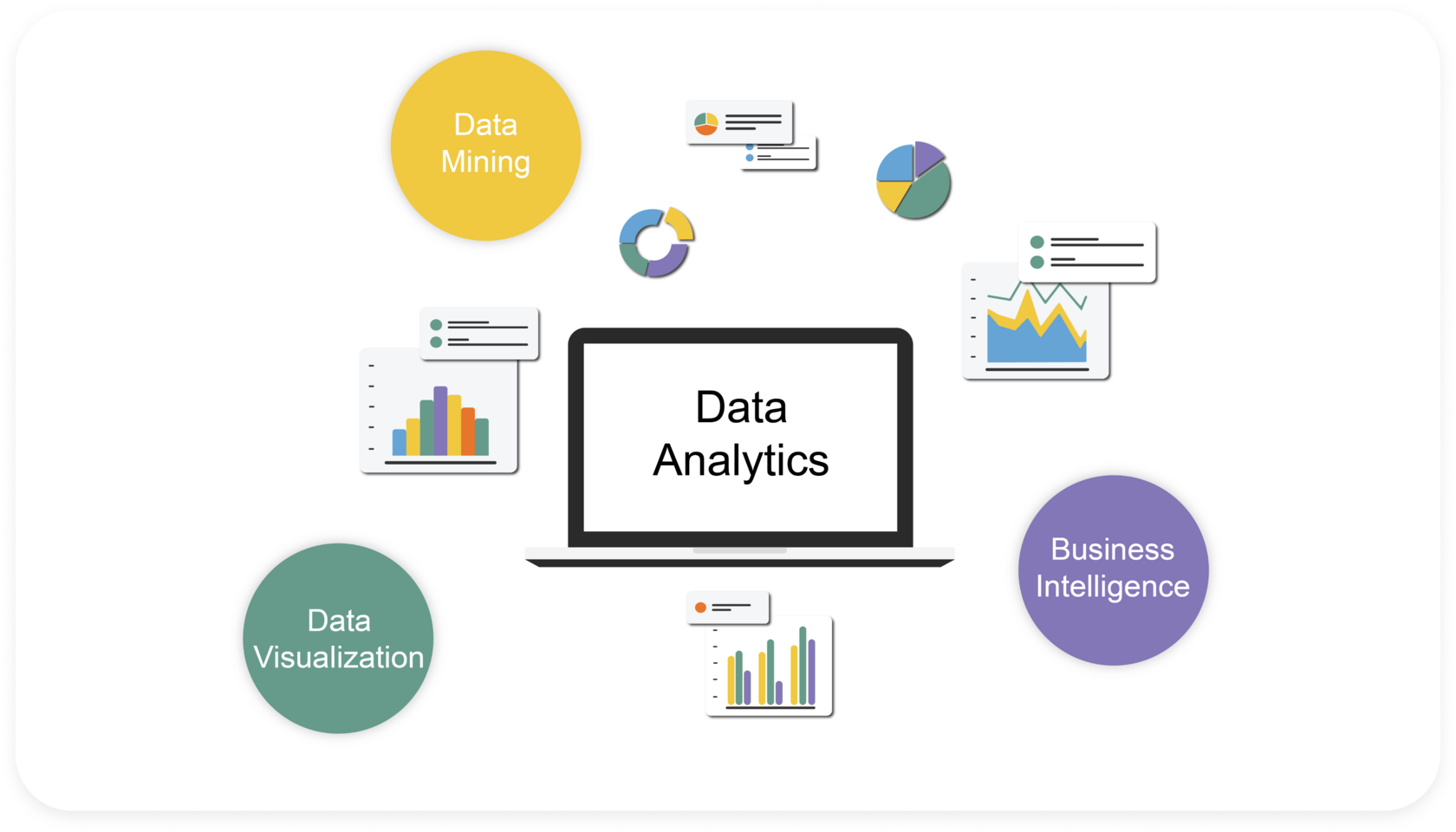Utilize Predictive Analytics for Future-Ready Decisions
Utilize Predictive Analytics for Future-Ready Decisions
Blog Article
Boost Effectiveness and Earnings With Data Analytics
In today's data-driven landscape, services are significantly acknowledging the essential function of data analytics in enhancing functional effectiveness and profitability. By systematically analyzing information, companies can discover essential understandings that educate strategic choices, improve processes, and dressmaker consumer experiences (Analytics). Nevertheless, the challenge exists not just in the execution of these logical devices however also in understanding just how to equate information right into workable results. As we check out the subtleties of effective data-driven techniques, the effects for both short-term gains and long-lasting success come to be progressively clear. What might these insights expose for your organization?
Comprehending Information Analytics
In today's data-driven landscape, recognizing data analytics is essential for companies intending to boost operational effectiveness and drive productivity. Data analytics includes the organized computational evaluation of data sets to discover patterns, correlations, and understandings that inform decision-making. By employing different strategies, such as analytical evaluation, artificial intelligence, and anticipating modeling, organizations can change raw information right into workable knowledge.
The procedure typically starts with data collection, where relevant information is collected from multiple sources, including transactional databases, consumer communications, and market patterns. This information is after that cleaned and arranged to ensure accuracy and consistency. As soon as the information is prepared, logical devices and software program are made use of to discover and envision the info, enabling stakeholders to determine trends and anomalies.
Ultimately, understanding information analytics encourages companies to make educated decisions based on empirical evidence rather than intuition. It promotes targeted approaches that can maximize source appropriation, boost client satisfaction, and enhance total efficiency. As businesses significantly identify the value of data-driven understandings, a strong understanding of information analytics ends up being an essential competency for leaders and teams alike, positioning them for continual success in a competitive setting.

Key Advantages for Businesses
Organizations that utilize data analytics can unlock a plethora of advantages that dramatically improve their operations and earnings. One of the key advantages is enhanced decision-making. Data analytics supplies workable insights stemmed from real-time data, enabling businesses to make enlightened selections that align with market demands and consumer preferences.

Furthermore, information analytics cultivates boosted customer experiences. By recognizing consumer behaviors and preferences, companies can tailor their offerings, bring about boosted complete satisfaction and loyalty. This tailored method frequently results in higher conversion prices and repeat company.
In addition, information analytics makes it possible for organizations to determine arising trends and possibilities. By staying ahead of the curve, organizations can take advantage of new markets and advancements prior to their rivals.
Implementing Data-Driven Techniques
Effective application of data-driven strategies requires a thorough understanding of both offered information and business goals sources. Organizations must first define their goals plainly, guaranteeing placement in between data initiatives and strategic purposes. This quality makes it possible for groups to concentrate on pertinent metrics and insights that drive decision-making.
Top quality data is necessary for accurate analysis, as inadequate information can lead to illinformed approaches and thrown away resources - Analytics. Organizations has to establish processes for information collection, cleansing, and management to maintain data integrity.
Additionally, promoting a data-driven culture is important. Workers in any way degrees should be motivated to leverage information in their daily operations. Educating programs and workshops can enhance information proficiency, encouraging staff to make informed choices based upon logical insights.
Tools and Technologies Introduction
A durable suite of innovations and tools is necessary for companies aiming to harness the full possibility of information analytics. These tools facilitate the collection, handling, and visualization of information, enabling organizations to acquire workable understandings.
At the foundational degree, information monitoring platforms such as SQL databases and NoSQL systems give effective information More about the author storage space and access capabilities. For information processing and analysis, programming languages like Python and R, together with structures such as Apache Flicker, make it possible for intricate calculations and artificial intelligence applications.
Visualization tools, including Tableau and Power BI, transform raw data right into intuitive visual formats, making understandings easily accessible to stakeholders at all degrees. Furthermore, cloud-based systems like Google Cloud and AWS supply scalable storage space and processing services, accommodating the growing quantities of data organizations experience.
For sophisticated analytics, anticipating modeling and AI-driven remedies are increasingly embraced, allowing companies to forecast trends and enhance decision-making processes. Incorporating these click to read tools into existing process is critical; companies that successfully leverage this modern technology can significantly enhance operational efficiency and drive productivity. Thus, purchasing the right tools and innovations is a strategic vital for any kind of data-driven organization.
Instance Research Studies of Success
Leveraging data analytics has actually led many organizations to achieve exceptional renovations in efficiency and success. One noteworthy situation is a huge retail chain that carried out anticipating analytics to enhance inventory administration. By analyzing historical sales data and client trends, the firm lowered excess stock by 30%, bring about significant cost financial savings and boosted capital.
One more example can be found in the production field, where a leading automotive maker utilized information analytics to boost its production procedures. By checking equipment performance in real-time, the organization identified ineffectiveness and traffic jams, resulting in a 20% rise in general equipment efficiency (OEE) This not just improved production rates however likewise lessened downtime and maintenance prices.

These case studies highlight how information analytics can drive calculated decision-making, optimize procedures, and eventually enhance both performance and earnings throughout numerous sectors.
Conclusion
In conclusion, the combination of data analytics right into business operations presents considerable opportunities for enhancing effectiveness and success. By systematically assessing data, companies can determine inefficiencies, maximize client experiences, and make educated choices.
In today's data-driven landscape, understanding data analytics is vital for organizations aiming to boost functional efficiency and drive earnings. Data analytics includes the systematic computational evaluation of information sets to reveal patterns, correlations, and insights that educate decision-making. Information analytics gives actionable understandings derived from real-time data, allowing businesses to make enlightened selections that straighten with market demands and consumer preferences.
High-grade information is necessary for precise evaluation, as inadequate data can lead to misguided methods and lost resources. Organizations must develop procedures for data collection, cleansing, and management to keep information stability.
Report this page